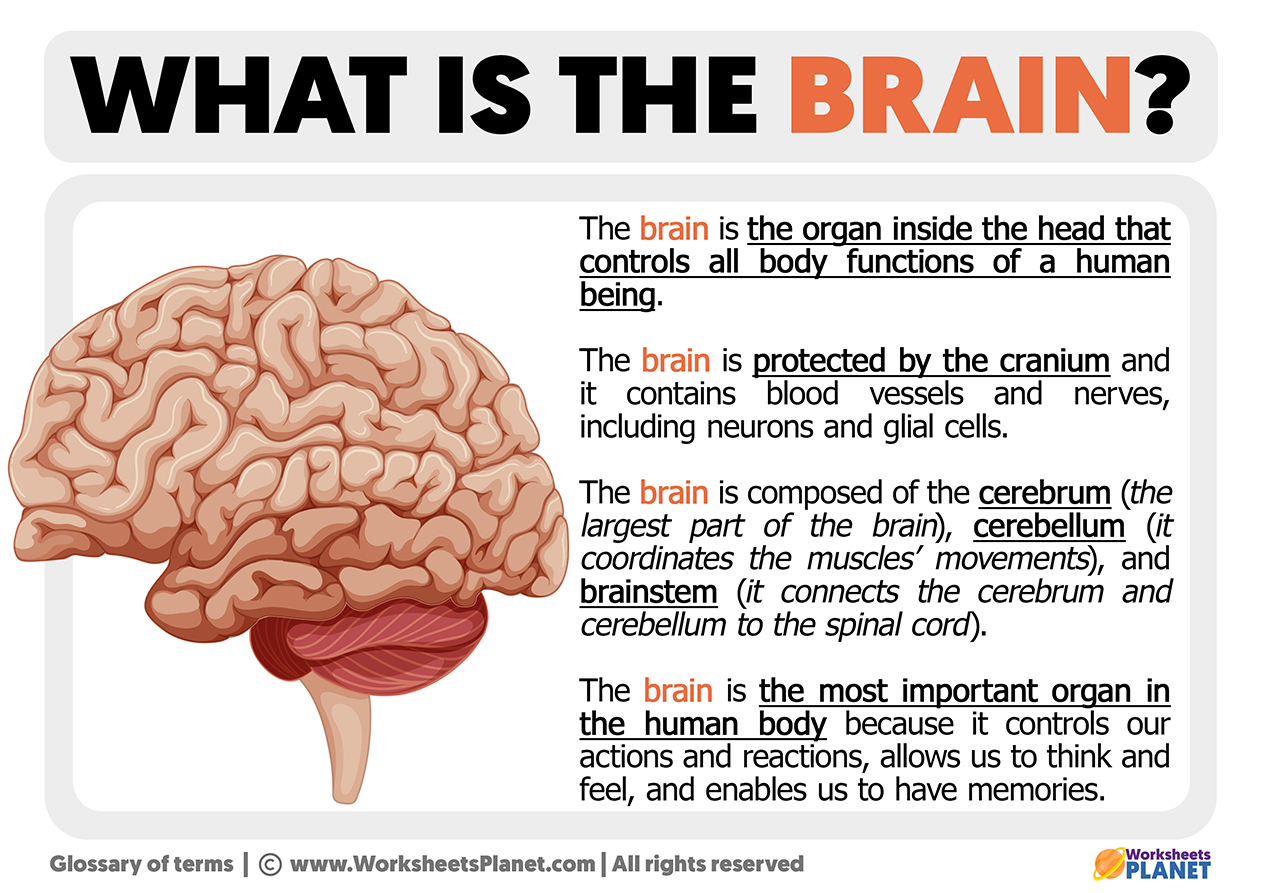The brain is a vital organ of the body, which controls cognitive activities and reactions of the organism, such as responses to sensory stimuli.

The brain is the central nervous system’s central organ and comprises two large hemispheres: the left and the right. A corpus callosum connects these two hemispheres.
Each of these two hemispheres is made up of four lobes:
- The occipital lobe is the one that processes visual information.
- The parietal lobe integrates sensory information to guide our movements.
- The frontal lobe plans and executes acts and participates in language production.
- The temporal lobe is crucial in giving meaning to sensory, auditory, and visual information. It is essential for language and contains the hippocampus, which is crucial for learning and memory.
In addition, the brain stem connects the brain with the spinal cord, controls voluntary movements of the eyes, tongue, or face, and automatic bodily actions such as heart rate, breathing, and blood pressure. The cerebellum is at the back of the brain, which is responsible for balance and coordination.
All the rational capacities of the brain cause the human species to evolve into what is known as rational animals, homo sapiens.

